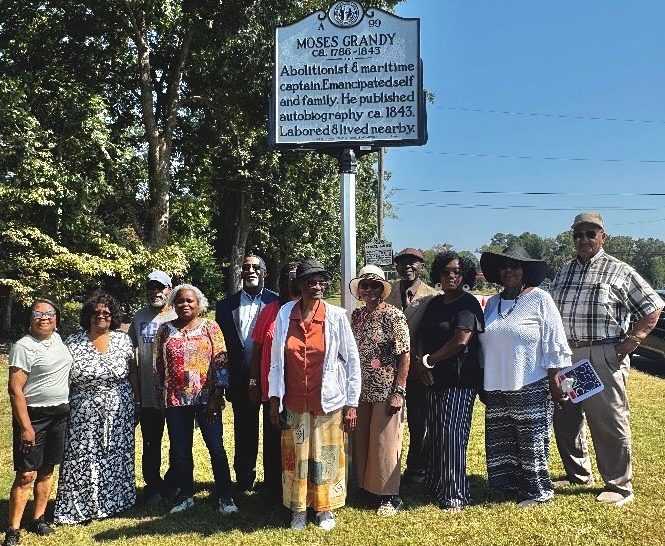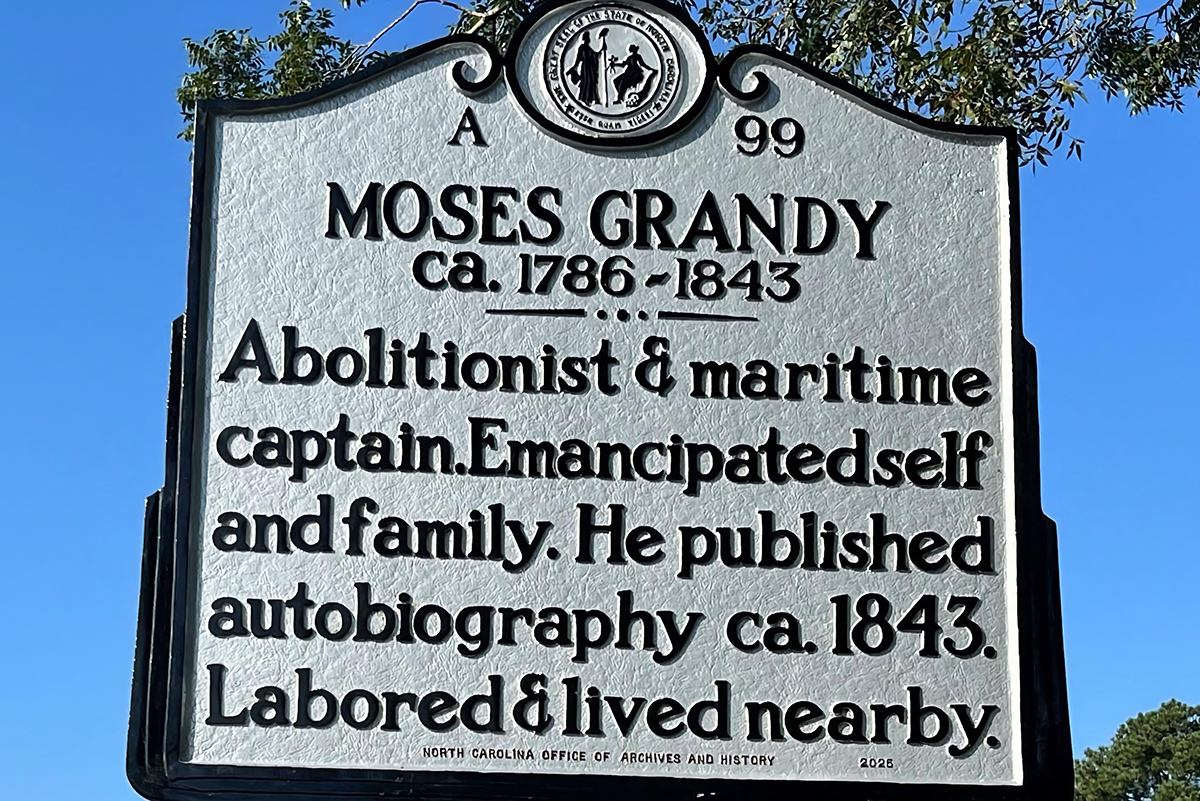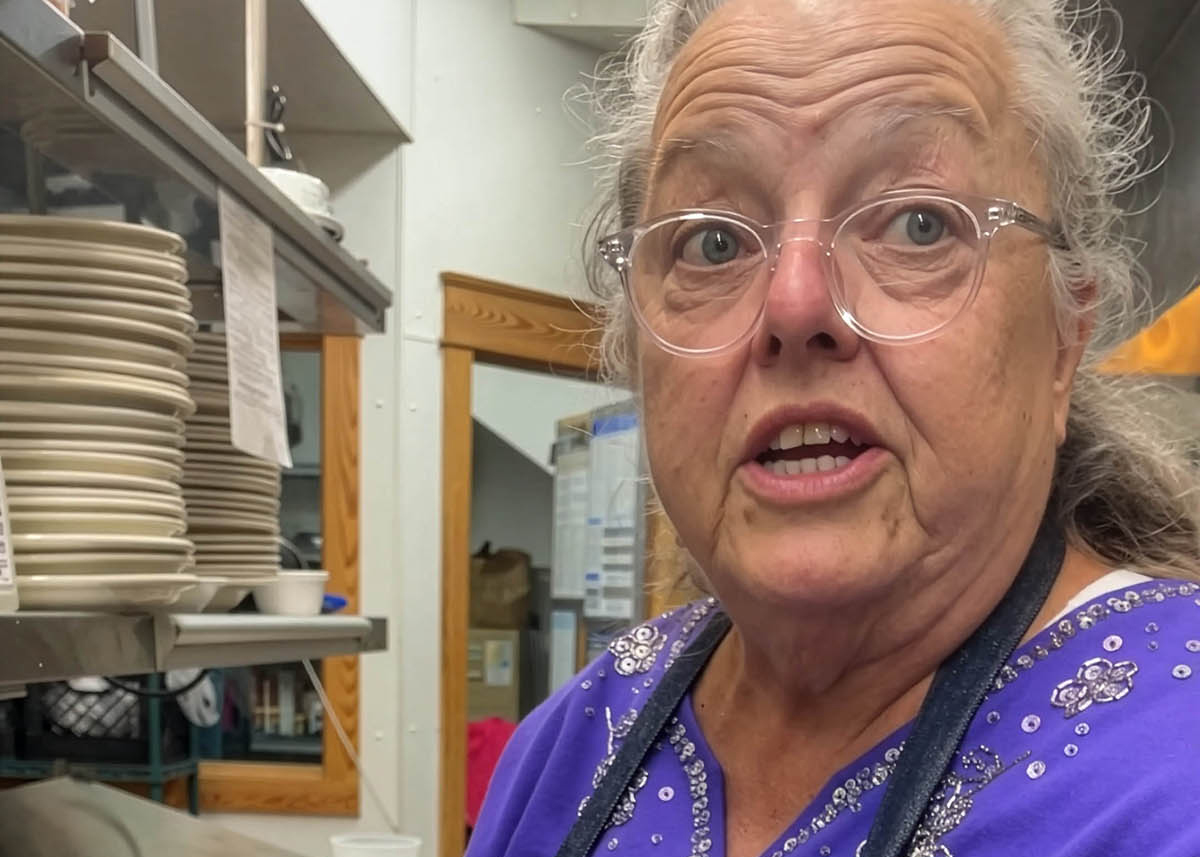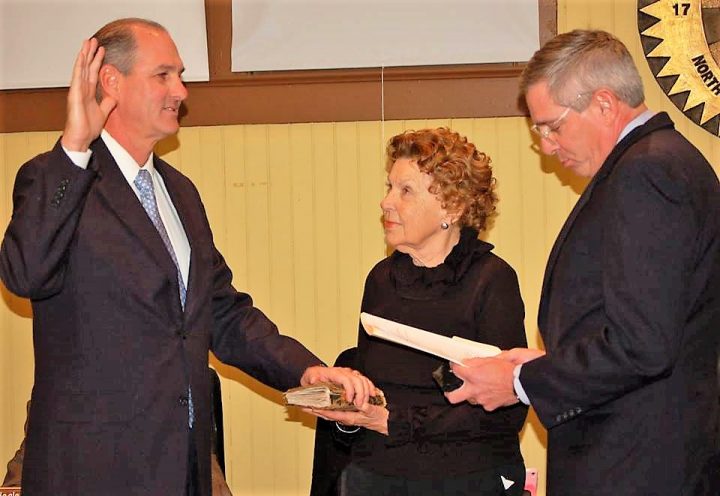
BEAUFORT – Newly seated Mayor Everette “Rett” Newton wants the Carteret County town to be “North Carolina’s first Clean Water Coastal Community.” The only problem? The designation doesn’t exist.
But that’s not stopping Newton.
Supporter Spotlight
“We’re going to work with the experts like the North Carolina Coastal Federation and North Carolina Department of Environmental Quality and the wizards like Rachel Noble over at UNC IMS (Institute of Marine Sciences) and we’re going to quantify what that means,” he said. “We’re going to understand where we are now and how do we get to that point where we are North Carolina’s first.
“And we will pronounce that from the highest sand dune in the region.”
His plans to move Beaufort forward in becoming a cleaner community include, “Changing a culture so that people don’t feel comfortable putting their trash in our streets or gutters or waterways,” he said, adding that another aspect is to use the watershed management plan that the town partnered with the North Carolina Coastal Federation to develop.
He said another part of the plan is to “use emerging technologies to be able to establish a baseline on where our water quality is right now, use technologies to improve that water quality and then take measurements over time to see how it improves.”
Newton took over duties as mayor Dec. 11, when he took the oath of office during the Beaufort Board of Commissioners meeting.
Supporter Spotlight
He said he decided to run for mayor because he wanted to be part of the changes brought on by the Gallants Channel high-rise bridge project. The $66.4 million construction project began March 25, 2014, and is scheduled for completion in early 2019.
“I think I just saw the opportunity that’s here,” Newton said, adding that he wanted to be part of the planning for the changes the new bridge and roadway project will bring. He said this is the most important transformation in Beaufort’s history. “The only thing that could compete with it is when the railway showed up in the early 1900s.”
Newton continued, “I also understand that we need to make some tough decisions. I’m not afraid to make tough decisions when it’s in the best interest of the community. I want us to be more transparent and accountable and we’re moving in that direction.”
Another point that struck him was the need for discussion about the lack of jobs and young families. “I wanted to push that important aspect of our community as well. I just want Beaufort to be better.”
Newton served as chair for six years of the town’s Parks and Recreation Advisory Board, a commissioner-appointed panel of volunteers. Serving in that role prior to be elected mayor helped him become familiar with how the town government and town staff worked, he explained.
“It also gave me an opportunity to look at the town holistically. The Parks and Recreation piece of this is just one of the many pieces of the Beaufort puzzle,” Newton said. “But I think one of the biggest advantages is it gave me an opportunity to look at the impacts of the new bridge and highway and how they would affect the town of Beaufort and how we can become a more bikeable, walkable and livable community.”
Newton reiterated that “Beaufort is an amazing place to live, and we’re going to get better,” but that leads to another of the tough questions, “How do we continually improve?”
“We did an assessment on what some of our strengths and weaknesses are in the community and one of the really glaring areas is that we are losing young professionals and families because we don’t have jobs to support them in Beaufort.”
Newton said the town needs to attract young entrepreneurs and, to do that, they need to consider basic infrastructure, like broadband, that could make Beaufort more attractive to businesses.
“And we need the young families to balance our more senior community because a vibrant town is when you have that balance between old and young,” he said. “We essentially need to establish the environment that will attract those young families.”
From Fighter Jets to Research Drones
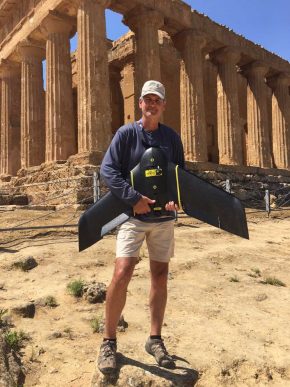
Newton graduated from East Carteret High School in 1978. He then went off to Campbell University, where he graduated in 1982, followed by the Air Force Institute of Technology, graduating in 1984. While in the Air Force, he was an engineer, fighter pilot and diplomat/foreign area officer. Now a retired Air Force colonel, he moved back to Beaufort because he wanted to live closer to his mother, Sunny Newton.
“I’m very fortunate to be back in Beaufort, and when I got back to Beaufort, I was involved in several different programs, but I started building drones at my kitchen table,” he said.
Once he was fairly proficient, Newton said connected with Dr. David Johnston, director of the Duke Marine Robotics and Remote Sensing Lab at Duke Marine Lab, who was just starting the drones program, and began volunteering.
Johnston sent him to Costa Rica for olive ridley sea turtle research using drones, the coast of Florida for right whale monitoring, gray seal survey in Massachusetts and to Vulci, Italy, to support Duke archeologists while studying Etruscan, Roman and medieval ruins.
Newton added that he has a great fondness for the marine lab because his father, John G. Newton, was marine superintendent when he was growing up.
“After volunteering for a little while, Dave asked me if I’d like to join the PhD program.” He is currently in his second of the five-year doctorate program at the Duke Marine Lab and “essentially doing the same thing: flying drones in support of marine science and conservation.”
Some of the areas he’s focusing on with his dissertation work are water quality, marine debris, coastal erosion and maritime archeology.
“You can also see that wearing my mayor hat that a lot of these things that I’m researching directly apply to Beaufort, for instance water quality,” Newton added. “Beaufort has coastal erosion concerns, it has water quality concerns, we have marine debris concerns, we don’t really have maritime arch concerns, but that still is part of our legacy.”
Clean water and reducing or eliminating marine debris, are all part of a clean community, and that’s good for commerce, he continued. “Wouldn’t you want people to come to a clean community? Wouldn’t you want to make sure that when they come we don’t have cigarettes butts in our streets and we don’t have Styrofoam in our waterways? We want to be known as a clean community, and more specifically a clean water community.”
Much of his academic work also falls in line with one of his short-term goals, which is to better understand the magnitude of the problem they are facing and to develop a long-range plan to clean up waterways and streets, which he said will involve both the citizens and the business community.
“And really, the strength of our community is the people. There’s so much talent in town,” he added.
Newton said that the community has also given him “tremendous support … They’re ready to move forward. We all understand what a wonderful place Beaufort is, but we also understand that tough decisions have to be made on some of our greater challenges, like infrastructure.”
And while the town’s infrastructure can’t be fixed overnight, it can be done incrementally, he explained, and show the community that it’s happening. “Because, as much as I’m concerned about that pothole on top of the road, I’m much more concerned about what’s creating that pothole underneath. …This is part of the tough choices we have to make,” he said. “But what I’m hearing from the people talking to me, is that they want us to start fixing our infrastructure.”
While there is momentum to fix infrastructure, Newton doesn’t want the community to be paralyzed by the challenge of infrastructure.
“We still want to work at the same time on our environment, on being more walkable, more bikeable, attracting those young families and attracting young professionals here as well, so while we’re doing this infrastructure, we’re still going to move forward on these other initiatives. The clean water community initiative as well.”
Looking ahead for Beaufort, Newton has been working with organizers from the Mountains to Sea Trail and NC Trails to incorporate the town.
“They want to come to Beaufort and we want them to come to Beaufort,” he said. Adding though still in the initial phases, “This is a really great opportunity for us.”
Though Newton has concerns about the crumbling infrastructure, number of second homes, lack of jobs and need for young families and professionals to move into town, “That being said, I don’t want to be negative at all, I am very optimistic that we’re going to be an amazing community.”




